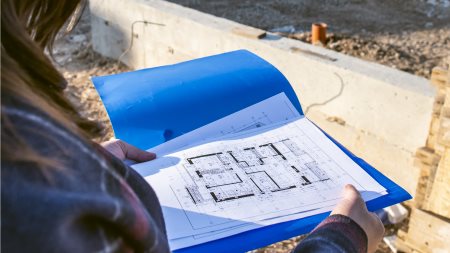Learn about the first steps to becoming a property developer in South Africa.
MARKET OPPORTUNITY
On a national level, all major cities in South Africa have primary objectives, in terms of their Spatial Development Framework, and one is Densification.
Any project where you are increasing the number of dwellings on an erf is generally seen as favourable.
Johannesburg, Cape Town, Durban and Port Elizabeth have all relaxed zoning regulations in certain suburbs. This means that a single residential plot, historically limited to one dwelling, can now have two dwellings with little effort on the part of planning approval.
The market also has a demand for a specific type of
property. Consumers are looking for small, secure living
environments, which allow developers to focus on small
multi-unit complexes. With the relaxed zoning regulations,
you can take a large single residential plot, subdivide it
and build two dwellings on each subdivision. This typical
four-unit development is currently undersupplied by large
developers, but has a good return for small developers.
MARKET CHALLENGES
In recent years we have seen a rise in large developers
targeting a specific market sectors – if you visit our
Developments Page at www.privateproperty.co.za/Developments/South-Africa,
you will find three-, two-, and one-bedroom apartments
that are appealing to the consumer and well-priced.
Competing against large developers would be a challenge,
right? You would either need to compete on price or on
quality. But if you are inspired to develop our housing
sector, find a great investment property and build small
terraced duplexes.
GETTING STARTED AS A PROPERTY DEVELOPER
Moving onto development is an exciting prospect, but it is best that
you start small and take time to understand the processes involved.
Build your team
Developing is a team sport, so start out by looking at who you need on your team as they are key to your success in this game. These are the key team members you will need to work with.
Architect - Likely the most important team member, start working with architects early on. The architect will also manage other technical professionals.
Estate agent - A key role player, not only in the sale of the project, but you will also rely on their insights to conclude the initial feasibility.
Quantity surveyor - Plays a role during the due diligence and during the project to track and control the expenses and resources. A good QS is key to any project.
Town planner - Your town planner is involved in your planning Processes. They have great insights on what the planning commission may or may not approve.
Attorney - Your attorney is key-critical to all property investing. Ensure that your attorney is experienced in developments and have them involved as early as possible.
TIPS FOR GETTING STARTED
- Start small and build from there
- Focus on the development of one project
- Start with a develop-to-sell strategy to build capital and experience
- Partnering with a reputable developer and learn from them
- Leverage the collateral and track record of a reputable developer
- Contract or partner with first class development team members
Now that you know about getting started as a developer...
The next step in your Buy-to-Sell Investor Guide is "Understand the different development strategies":
- Getting started as a property developer
- Three different strategies for developers
- Seven development project steps




